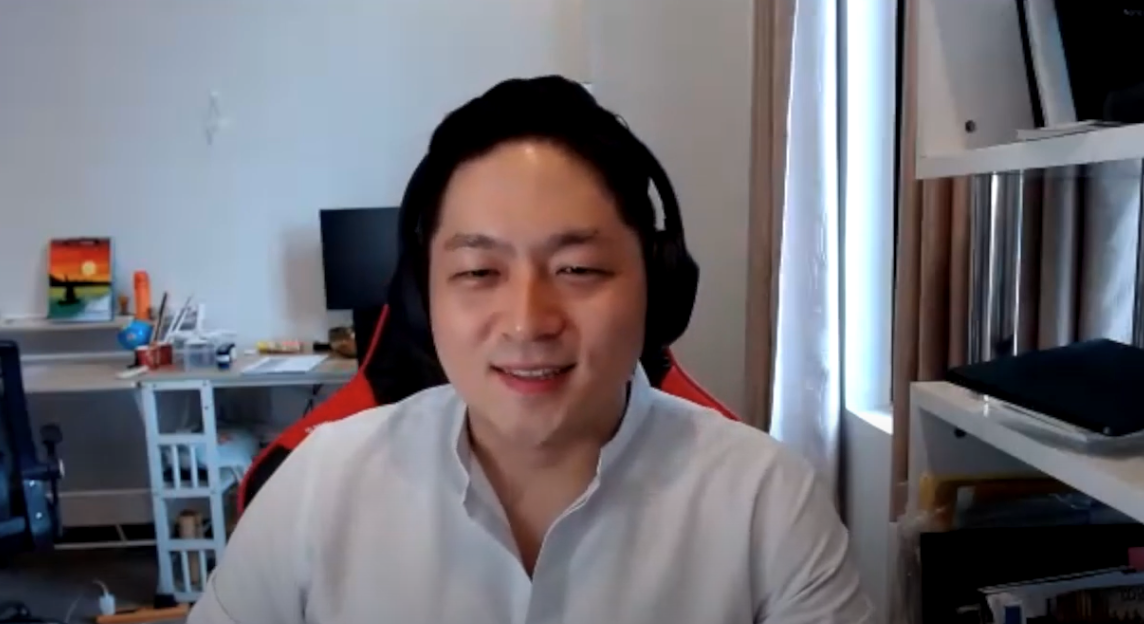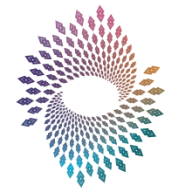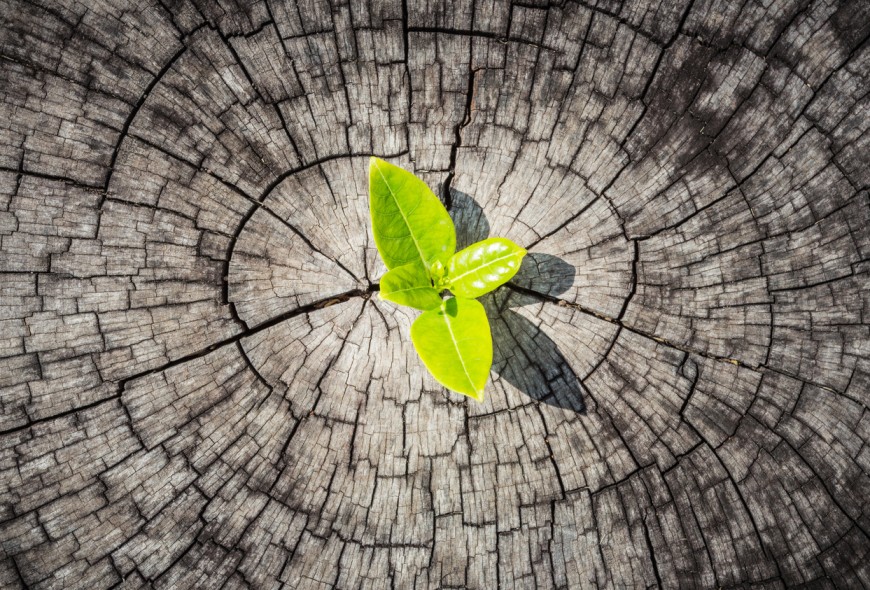In Pursuit of Purpose
- POSTED ON JANUARY 18, 2024

This time of year can be a moment of universal reflection often leading to us pondering our 'why'.
We spoke with CTI alumni, Joey Ra, on the power in pursuing - or pausing - purpose. As a transformation coach, he is devoted to helping others align with their purpose, guiding them to connect authentically with themselves and harness their sensitivity as a powerful force for change.
Rebecca: I'm joined today by CTI alumni, Joey Ra. Joey's life journey has been a transformative
passage from conformity to purpose-driven fulfillment. Starting with an academic foundation
in biochemistry, he initially followed the path expected of him, and his early years
were marked by academic achievements. It was not until he found himself grappling
with burnout and the disillusionment of corporate life that he began a profound introspection.
In the wake of a personal tragedy, Joey's life took a poignant turn, marked by grief,
depression, and an earnest quest for meaning. He embarked on a courageous journey
of self-discovery. He took up coaching, and following a global pilgrimage, eventually
settled in Cambodia. Today, as a transformation coach, he is devoted to helping others
align with their purpose, guiding them to connect authentically with themselves, and
harness their sensitivity as a powerful force for change.
Thank you so much for joining us today, Joey.
Joey: Thanks for having me, yeah.
Rebecca: Joey, purpose, it's such a big word, and a lot has led you to finding yours.
Can you start by explaining why it's been so transformative in your life?
Joey: So growing up in a religious family, I think purpose was something always to,
like, find, like, what is God's purpose for you in your life? So in my childhood I
was like, okay, you know, when I'm an adult, I'll find out what that is. But then,
I think growing up, and going to university, and starting working, starting to realize
that maybe buying into a sense that life isn't that purposeful, there isn't a purpose,
that we're just meant to, you know, make a living, and just go on that treadmill of
sorts, yeah, I don't think it was a conscious thing. It was just taken in by the,
how do you say, like the thoughtlessness of it all, just doing the right thing...doing
the right thing, getting a job, and then life kind of takes over you, over my life.
The thing that...the big change that happened was the personal tragedy, like you mentioned
in the intro, where... So I had a younger brother, 18 months younger than me, and
he died of an accident when I was 23, so a few years into my corporate life, as I
was working for one of the Big Four in London. So that resulted in a lot of, like,
grief and depression. I was like, what is the point of living?
When it came to a point where I decided, actually, I don't want to die, I want to
live, and then the question became, what do I want to live for? Like, what might give
me a sense of purpose? So that's how I restarted that journey of, okay, what might
I want for my life? What might be a purpose that I can live for? Because again, growing
up in the church, religious setting, they say, you know, what would you die for? And
that's your purpose. But someone posed a more powerful question, it's like, actually,
what would you live for? And that was a much harder one, and that's the one that kickstarted
this whole journey to being here.
Rebecca: I love that, what would you live for? It's a really powerful question. So
how do you help people connect with their purpose?
Joey: I, first of all, start by taking the pressure off it. I think purpose is not
something that we can seek out. I say, okay, let's forget about trying to find your
purpose. Let's have you first connect authentically to yourself, to ourselves. Because
I think that's one of the reasons why purpose is difficult. It's like, when we're
so disconnected from ourselves, how do we know we're doing what we're supposed to,
like, what our purpose is? So even starting off with basic things like what do you
like to do? What do you enjoy? What brings you joy? And starting there, and getting
them...yeah, there, like, what makes them feel alive? Starting taking the steps towards
answering that question first.
And then, once we know that, and that's more like who are you, and then we can move
on to if this is who you are, what is the kind of impact that you want to be making
in the world to those around you, to your spheres of influence? Like, when we talk
about purpose, it can seem such a grand thing, but I think purpose can be much...at
a smaller scale, and yet more impactful. Like your family members, the people you
work with, your immediate community, like, what do you want to be remembered for?
What is the impact that you want to be making on their lives? I mean, that's where
I usually take my clients.
And like, some of my clients are very amazing people, and doing amazing things at
a much larger scale, and that's great, but that's not the main thing. It's like we
start them with the small stuff first, the immediate stuff first, and sometimes they
feel connected to that grand vision, but always they're connected to what is the impact
I want to make to my immediate circle.
Rebecca: You yourself have experienced burnout, and I have, too. Oftentimes, with
really deep stress, it puts us in this paralysis, and it makes it hard to connect
to our purpose. How do you navigate those scenarios with your clients?
Joey: I work with my clients, and myself too, because I still experience burnout from
time to time. First, again, it's the same as if we're just taking the foot off the
gas completely. People think they need discipline and action, but what they more often
need is compassion, and a lot of rest. Especially in burnout, like, it takes a long
time to recover, to get back to baseline. So again, making it okay to not feel connected
to a sense of purpose in this moment, accepting that this is where they are at right
now, and then doing what they need to, again, connect back to themselves in this moment,
to be themselves authentically in this moment, which might be, hey, I'm in a season
of recovery.
And so we do a lot of work just dwelling in that, and then seeing what gifts might
be here. And eventually, as the seasons always change, we also...or they also get
out of burnout, and then feel invigorated in a different way, in a new way. But the
way I kind of like to think about it is, it's not going back to what things were,
but having been through this, like, what is next? What is new?
And I think with purpose, sometimes we chase purpose so that we avoid being with ourselves
in this moment. A lot of my clients are like that, you know, what's next? What do
you want to achieve? And I need to find my purpose. And you'll see this in kids, I
think, the younger they are, they're like, "I need to find my purpose." Why? So they
can feel less crap about themselves now. And I think this is one of the beauties of
CTI, with the process, that I think sometimes we just need to develop the capacity
to be with all of us. And part of that's fulfillment, too. Like, what are our values?
What are our strengths, and our saboteurs? And just be with, and just dwell for a
minute. I think most of us could do... It would be helpful for most of us to think
a bit less about purpose, and more about accepting where we are right now.
So coming to Cambodia was part of my own, like, self-discovery and healing journey,
that first step towards my own purpose. I was initially just attracted by the temples,
which is a fantastic and spiritual place. But once I landed here, I was so drawn by
the...well, first the trauma that exists in this space. Because there was a genocide
in the late '70s, where, like, 20% to 30% of the population were killed, and mostly,
like, higher educated academics. And at the same time, so they're recovering from
that trauma, but at the same time there's a lot of entrepreneurship, creativity, like,
because all the businesses were lost, all the arts were lost, so there's a lot of
energy flowing in that area right now. And the average age is very, very young. It's
like 25. And so I'm like an old person here, and I felt like, oh, maybe I can be a
guide of sorts, or helping people connect to themselves as they heal from this.
And I think part of what we do as coaches, and this is my coaching philosophy, is
helping people connect to themselves and other people, and then the wider system.
And I know from experience, also from research, that that is very beneficial for recovery
from trauma, too. So although I couldn't articulate it like this at the time when
I came, like, that's been the evolution of, like, discovering or unveiling of the
purpose of me being a coach in Cambodia. And I think that coaching can have a really
big impact in this generation, where like, so many people, there are so many young
people who are so open to new ideas, and changing things, and have a real desire to
shape the country for the better, and really high youth engagement. And so I thought
coaches could play a really big part in guiding them to do that from a place of authenticity
and love, rather than of, like, insecurity and competition and scarcity.
Although CTI has been very generous with scholarships with a couple of Cambodian coaches,
I'm really happy that there are some other co-active coaches now in Cambodia. So thank
you.
The other is in companies. So this is where the majority of adults spend the majority
of their time, workplaces. And they are the fathers and mothers to the new generation
coming up, and so if there can be a healthy, nurturing, high-performance work environment,
then I think that could have a big impact on the whole country. So helping to build
coaching cultures. Thankfully, a lot of international organizations around the world
are already investing in coaching. CTI does a lot of work there, so I can use that
as case studies, and starting to do a bit more in this area, so training managers
to use coaching skills, let's say, for their staff.
And then third is something that we're developing now, training teachers in coaching
skills. And that's important because, again, there's a huge chunk of population, the
big chunk that are children. And imagine if they grow up in an environment where the
teachers, one, have the desire to, and two, equipped with the skills to identify what
does this child need, who is this child, rather than trying to plug them into a box
so that they can be part of the system. Like, who is this unique child? What are their
gifts? How can we help them thrive? If they're... And a lot of teachers have that
desire, but don't know how. So we started imagining what if we could enable teachers
to be coaches in schools? And we're already working with a school to do that.
And we had this, like, big question as a dream, it's like, what if we could change
and transform, like, the mental well-being and performance of an entire country in
one generation through the power of coaching? So yeah, like, that's the vision question.
Rebecca: Yeah. So we know that coaching is therapy, but there is a lot of therapeutic
power to coaching. How are you seeing that manifest when you're working with your
clients?
Joey: Yeah, 100%. I think anything that helps people connect to who they are, like
who am I... And it could be things like what is this purpose, or what are my values
or strengths, connecting them to their bodies, to their emotions. But that was my
own experience. I have seen therapists before, and psychologists, and also coaches,
and a CTI coach coaching me, I had the most amazing healing experience. So that's...
I might be digressing a bit, but that's how I see coaching play a part, anything that
helps people connect to themselves. But also in coaching, we do a lot about relationships,
right, how clients relate to other people in their lives, and what kind of relationship
they want to have, nurturing relationships that help their natural selves thrive.
And again, that's, I think, super, super healing. As well as, you know, like, connection
to the wider system, what's going on? Like, what is the sense of meaning in my life?
And how do I... Like, if life is meaningful, like, how do I contribute to it?
And I think of Viktor Frankl when I say that, and he says, you know, if purpose, then
has a meaning to live by.
Rebecca: And how often do you revisit purpose? Do you find it changes in you, in your
clients? And you know, how does that move through their transformational journey as
you revisit all the time?
Joey: For myself and my clients, I think we find that it's like, if purpose is this
big, really long river, like, different sections of it look very different, and manifest
differently. And similarly with purpose, like, sometimes they feel very connected
to one particular manifestation of purpose. So right now, like, I train coaches in
Cambodia. A season before that, like, I was really connected to, okay, let's change
the conversation around mental health, and felt really connected to that sense of
purpose. And right now I'm not in that forum, but the longer theme, the overall arc
is still the same arc, if that makes sense.
And so it's about... And so especially because I work with a lot of entrepreneurial-spirited
people, whether it's artists, or real entrepreneurs, or people who work in companies,
and... They feel really passionate and driven about, like, doing this particular thing,
so they work on it, and then we finish it, they finish it. Or sometimes they kind
of don't feel connected to that anymore, and they're like, ah, what do I do? But there
is always another thing. And it's helping them to see that, you know, they're not
a different person. We're always changing. The purpose may seem like it's a different
thing, but when they realize that it's just the same story that they're on, that gives
them a sense of continuity, and a lot of sense of peace.
Rebecca: What three things did you wish you knew before, that you know now?
Joey: One for new coaches is I wish I knew that it was okay to not, like, make a full
living from coaching in the beginning. And I didn't. I had other sources of income
for many years, and still do. But I think there was a bit of shame around that in
the beginning. And I see that new coaches are putting themselves through a lot of
pressure because of it. Like, oh, I'm a coach now, I'm trained, I should be able to
make so much, you know, all my money from my coaching skills, and I think that really
can get in the way for new coaches. And it did play a part in my own journey, too.
Like, you know, stories around charging, stories around, like, I'm not making as much
as I used to, or worried about paying the bills, and I think at times, there was a
bit of scarcity that crept in.
Two is... And again, I think I knew it intellectually, but I didn't quite know it
in my body, or live it. Really, like, the best investment you can make as a coach
is to get coached yourself, and to develop yourself more. And I had the pleasure of
working with a couple of amazing CTI coaches, Victoria and Robin Coghlan, and working
with them, like, the return on investment, if you can even call it that, has been
astronomical. Yeah. And as a result of that, my coaching also improves, but we're
not coaching about my coaching, just growing as a person, and developing. Yeah.
And I think the third one which I knew was...and it's linked to the second one, it's
like, tapping into your authenticity, who you are as a person and as a coach, I guess,
like, that's the path for you. That's been the path for me. Like, I have quite a whimsical
style, I'm not so eloquent with my powerful questions, but it works for me. And it
works really well... It attracts the clients who need me, and who I need. And so,
yeah, knowing who you are, and accepting who you are, and then putting that out there
into the world, you know, I wish I knew that earlier.

Co-Active Training Institute (CTI)
Since 1992, CTI has been working with coaches and leaders around the world, helping them navigate toward stronger relationships, integral solutions, and creating meaningful impact in the world. The work we do goes beyond training. Through ground-breaking teaching methods and a global network of world-class faculty and partners, the Co-Active difference delivers contextually relevant and experiential learning that ignites transformation and a life-long journey developing the deepest expression of leadership in each human being.
View WebsiteMost Recent
How to Quit Your Day Job for a Dream Career | Co-Active April 24, 2024

Tips for Starting a Coaching Business for Aspiring Entrepreneurs April 17, 2024

How to Adapt to the Future of Leadership with Coach Training April 10, 2024

Feeling Stuck? How to Create from Adversity | Balance Coaching April 03, 2024

